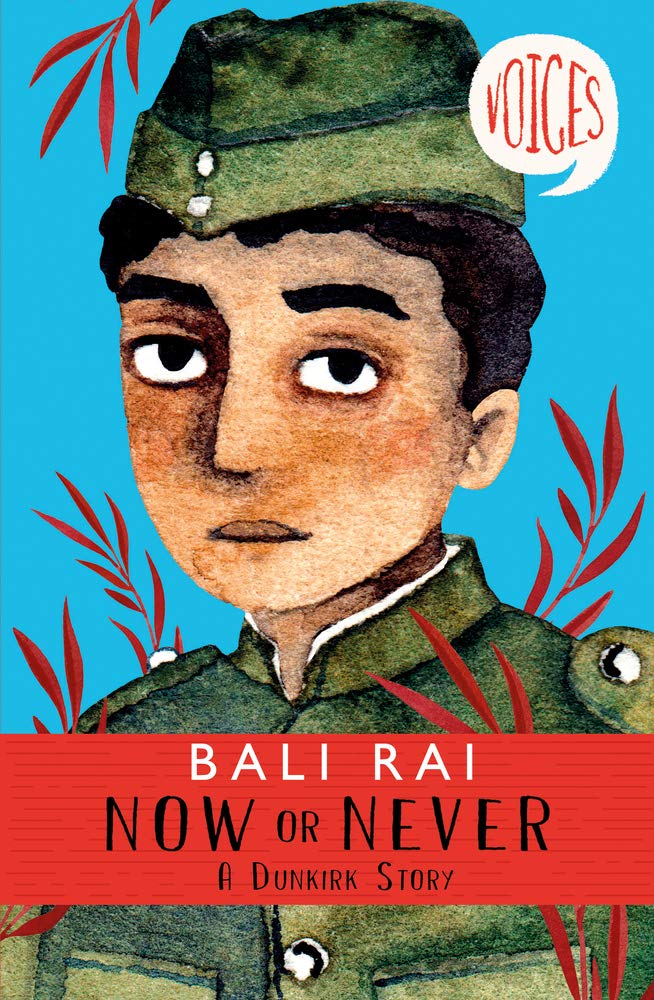It's hard to write an enthusiastic review about a story so terrible. Terrible because the horrific events which inspired this telling are true. Not terrible because it is told badly - not at all.
The evacuation of Dunkirk took place in the May and June of 1940. It saw the evacuation of over 330,000 troops to Britain as Nazi German forces closed in, however 68,000 men were captured or killed during the operation. Bali Rai's tale of Private Fazal Khan, a member of the Royal Indian Army Service Corps, and his journey to Dunkirk is an enlightening but sadenning one. He, his company and their mules, under the leadership of the wonderful Captain Ashdown, trek across France, braving one of the worst winters on record and the constant terror of German airstrikes, not to fight but to flee.
However, despite the awful circumstances of that first year of the second world war, there are incredible moments of light in this brilliant book. The fact that this story is even being told - how men from all over the then British Empire signed up, feeling like they were doing their duty - is a major positive. There's also the flashbacks to a young Fazal's life when lessons he learnt from his grandfather come in handy as he deals with death and destruction at the hands of an enemy. Then, when you are expecting racist antagonism from all quarters, you read of kind, humane characters who accept the Indian soldiers as equals and who treat them with great respect.
There is, however, a realistic depiction of prejudice and discrimination coming from individuals and of systemic racism coming from the British government. Yet, again, there are some lovely moments where Fazal and his best friend Mush get the opportunity to teach the British soldiers a little more about the culture and religion (both are Muslims) giving this story a spiritual backbone that isn't always found in children's books.
This is a frightening story, one which doesn't avoid the horrors of the war. Nor is it gory, thus making it an appropriate read for children in upper key stage 2 and beyond. It is the sort of novel, however, which shouldn't be read lightly - there are serious issues to discuss here and I'd expect most children who read it would want to talk it through during and after reading. This would be ideal as a class read for those studying WW2 at school - especially as it presents a very different perspective of the war. A totally recommended read, just not an easy one.
This book is the first in Scholastic's Voices series. Click here to read my review of 'Empire's End - A Roman Story' by Leila Rasheed, the latest book in the series.



No comments:
Post a Comment